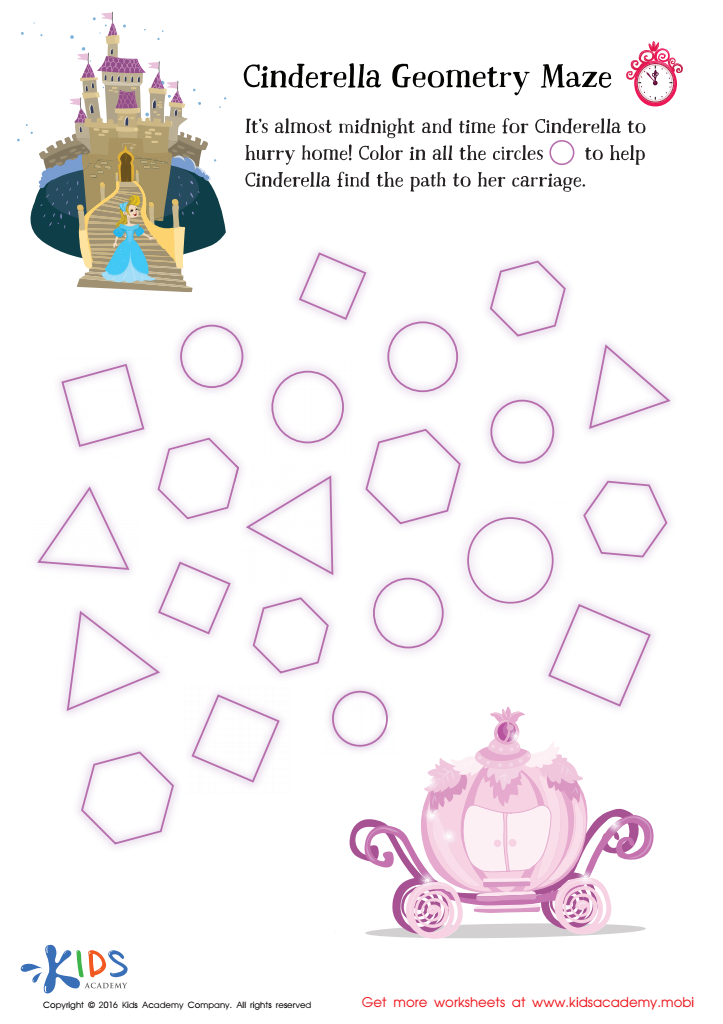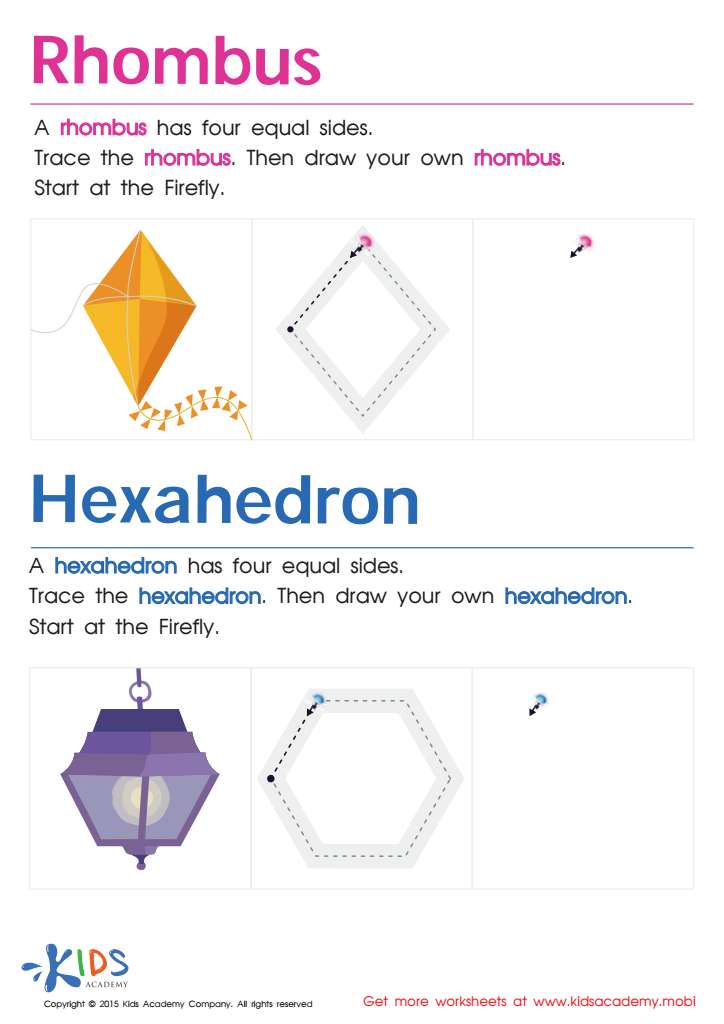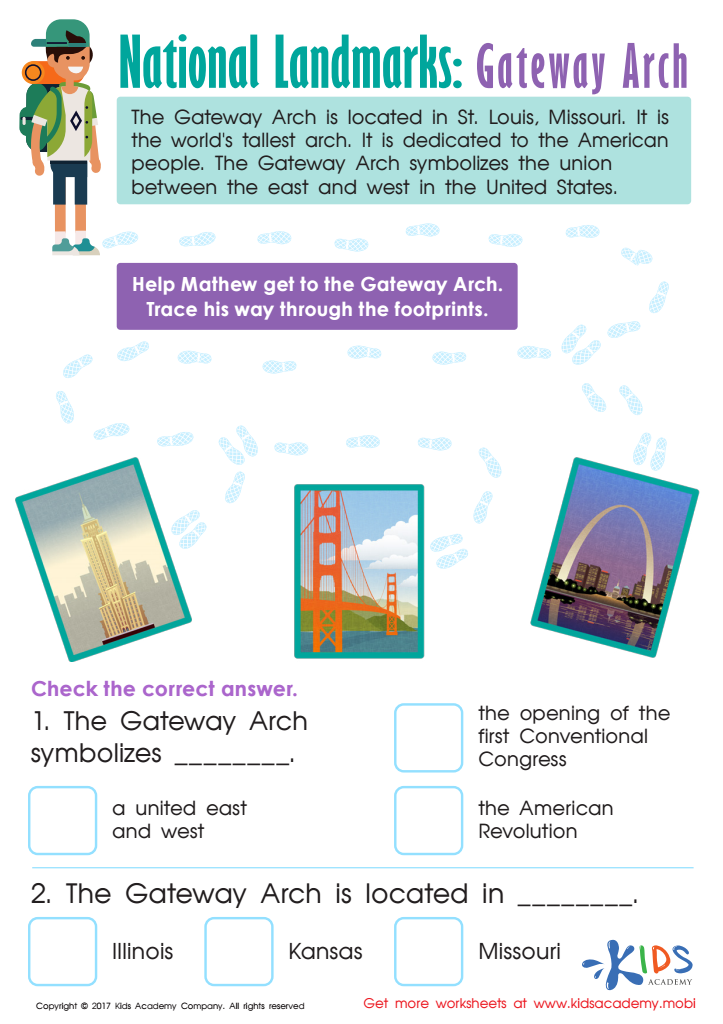Geometry understanding Normal Worksheets for Ages 4-8
3 filtered results
-
From - To
Unlock your child's potential with our Geometry Understanding Normal Worksheets for Ages 4-8! Thoughtfully designed for young learners, these printable worksheets cover essential geometric concepts such as shapes, patterns, symmetry, and spatial recognition. Ideal for parents and teachers alike, they offer a fun and interactive way to develop critical thinking and problem-solving skills. Each worksheet is easy to use and crafted to engage children, making learning both enjoyable and effective. Boost your child's confidence in geometry with our expertly curated collection and watch them master foundational skills effortlessly. Perfect for home or classroom use.


Cinderella Geometry Maze Worksheet


Draw a Rhombus And a Hexahedron Printable


Gateway Arch Printable Worksheet
Understanding geometry at an early age is vital for children's cognitive development and academic success. Parents and teachers should prioritize this both in school and at home. For children aged 4-8, learning geometric shapes, spatial relationships, and basic properties of objects forms a foundation for more complex mathematical concepts. This understanding enhances their problem-solving skills, logical thinking, and spatial awareness, which are crucial across various domains.
Children naturally encounter geometry in their everyday environment. Recognizing and naming shapes, such as circles, squares, and triangles, helps them make sense of the world around them. For instance, the ability to recognize patterns contributes to skills in sports, art, and science. It also boosts their vocabulary as they learn to describe different shapes and their characteristics.
Moreover, geometry nurtures fine motor skills through activities like drawing shapes or assembling puzzles. These activities improve hand-eye coordination and control, essential for tasks like writing.
Parents and teachers who foster a geometry-rich environment enhance early learners' confidence and enthusiasm for mathematics. Integrating playful, hands-on geometric activities can spark curiosity and love for math, setting a strong educational foundation. Early geometric comprehension aids in future success in STEM (Science, Technology, Engineering, Math) subjects, promoting lifelong analytical skills.
 Assign to My Students
Assign to My Students




















